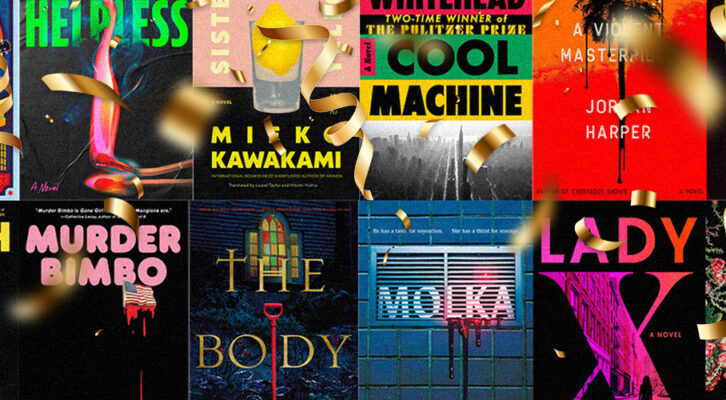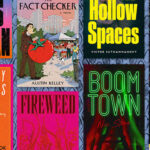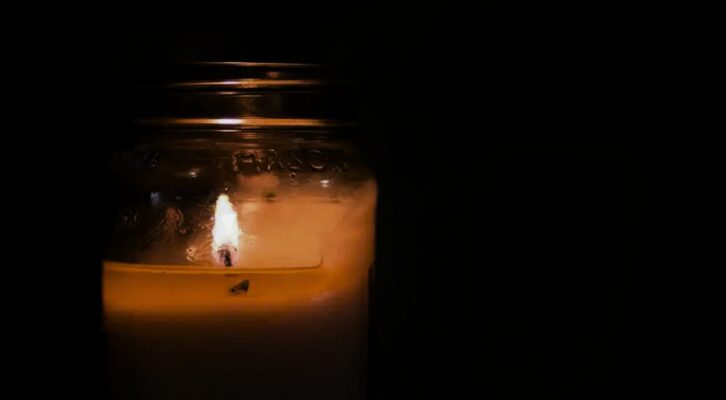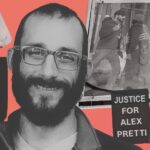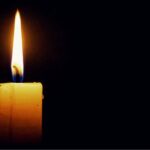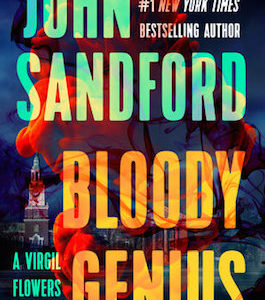In the spring of 2014, I got a call from Lan Samantha Chang, the director of the Iowa Writers’ Workshop, informing me that I’d been accepted to the most prestigious MFA program in the country. It was one of the best, most incredible moments of my life—and also the start of the worst case of writer’s block I’ve ever experienced. Iowa, after all, famously produced Flannery O’Connor, Raymond Carver, and two of my personal writing heroes, John Irving and Paul Harding. It’s a program famed for its legacy of realist literary fiction, and as a genre nerd who’d been weaned on Anne Rice and Stephen King, I assumed (wrongly) that since I was going to Iowa, I needed to start writing “Iowa” stories—small, sad character studies with a strong emphasis on language and interiority and quiet epiphany.
As soon as I started trying to write in this mode, writing became nearly impossible. No idea I had seemed good enough, and my prose felt stilted and bored with itself. By the time I arrived in Iowa City in August of that year, I was living in a constant, low-grade panic. This anxiety wasn’t eased by my early workshops, where my bad fiction was called out and dissected by my classmates and instructors. I started to believe that there had been a terrible mistake—both on the program’s part, for accepting me, and on mine, for leaving my home and safe office job to come to a place where I clearly didn’t belong. I didn’t give up; I continued going to class and trudging through my lousy stories about bad dads and teenage spring breaks. But at home I continued withdrawing into myself, watching Batman cartoons and reading the genre novels that had served as a balm when I was a kid.
And then, one day in October, walking my dog around the marsh behind my neighborhood, I suddenly had an idea for a whole novel. It would be a tragicomic saga in the vein of The Hotel New Hampshire or The Position, and would chronicle the history of a family running a haunted house attraction in the suburbs of north Texas. Originally meant to be set in a realistic world, this project seemed like a perfect opportunity to marry my lifelong obsessions to my MFA program’s historic output. Monsters could serve as metaphors and subtext, reference points my characters could use to filter the horrific experiences of everyday human life. I would call it A Cosmology of Monsters, and the book’s major literary horror reference would be the work of H.P. Lovecraft.
* * *
This decision to employ Lovecraft didn’t spring from a lifelong love affair with the man or his oeuvre. While I liked the imagery and ideas associated with Lovecraft, I’d always struggled with his prose, which was somehow both overwrought and exceedingly dry. Worse, the stories I did manage to plow through all seemed to follow a pattern: a sensitive first-person narrator descending into an ancient ruin or investigating some purported paranormal phenomena before coming face to face with an unthinkable cosmic horror and then fleeing into the night, temporarily robbed of sanity. The formula was rigid, laughably invariable.
I was also aware of and disturbed by Lovecraft’s blatant racism and xenophobia, which seemed excessive even within the context of his own time. His fear of the other, the “outsider,” is integral to his work. But when I started the novel in late 2014, I was studying with a diverse cohort of writers in Iowa City. Barack Obama was in the White House. LGBTQ rights and public perception seemed to be moving in the correct direction (if too slowly, as always). I felt I could dismiss Lovecraft’s racism as a relic of the past and focus on the nihilism and dark wonder I mentioned above.
And, despite these weaknesses, Lovecraft had three strong points in his favor. First was the history of his stature in the general culture. Cosmology begins in 1968 and finishes close to the present day, and in that time, Lovecraft has gone from an obscure but beloved genre writer to a ubiquitous presence in pop culture. That staying power meant that his work would serve as an effective thread between my characters Harry Turner in 1968 and his son Noah in 2013. Second, Lovecraft was a cosmic pessimist who believed that humanity was a meaningless speck in a vast, chaotic, godless cosmos. That nihilistic outlook felt like a strong aesthetic for a story about a family beset by tragedy.
Third, and most important, despite the thrashing I just gave Lovecraft’s prose, something magic happens in his stories when they at last begin to peel back layers of suggestion and reveal the true horror waiting within. The sentences, formerly awkward and bloated, begin to flow, and the pages turn as though blown by wind. His characters undergo dark religious experiences, touching the fabric of a large, hostile universe. That dark wonder is an incredible effect, and something I wanted to capture in my own work.
In early 2017, Lovecraft’s fear and hatred of “the other” became the most glaring, prominent thing about him.I set to work both reading my way through Lovecraft’s fiction and writing my novel, always looking for ways to connect or echo the two. I named each section of my book after one of his stories—”The Thing on the Doorstep,” “The Picture in the House,” etc. My characters had long conversations about Lovecraft and his creations. I tried to engage with his texts as honestly and directly as possible, but only with his texts. While I was writing the novel, I didn’t read any Lovecraft-inspired stories or novels. I didn’t want to lean on anyone else’s tricks, or worse, see that someone had already written the same book I wanted to write. It wasn’t until after I finished that I read some truly excellent Lovecraft subversion, like Victor LaValle’s Ballad of Black Tom, Kij Johnson’s The Dream-Quest of Vellitt Boe, Matt Ruff’s Lovecraft Country and Nick Mamatas’s I Am Providence. I wish now that I had allowed myself to read these books, because their methods for “fixing” or rebutting Lovecraft might have saved me some heartache down the road. Instead I plowed on, happily ignorant, finished my first draft in August of 2016, and after some further revisions, sent it to my agent in late October of that year.
A few weeks later, Donald Trump was elected president. As the rhetoric of the people in power shifted, I came to a broader understanding of my own extreme privilege. Not only had I been cloistered in a safe, loving environment that valued art above all else, but I’d done so as a straight white man. This meant I’d never been sexually harassed by one of my students or pulled over by the Iowa City police for driving while black. It meant drunken frat boys had never hurled homophobic slurs at me downtown on a Saturday night. An accident of birth had given me an easier path through life, a path that has remained unaffected as the Trump administration has systematically stripped rights and protections from people I care about.
* * *
In early 2017, Lovecraft’s fear and hatred of “the other” became the most glaring, prominent thing about him, and his influence on A Cosmology of Monsters no longer felt like something I could proudly explain to a stranger. For months I wallowed in self-pity, read paperback fantasy novels, and got really into my Playstation VR. Eventually, after some gentle prodding from my agent, I started the slow work of solving the impossible problem I’d created for myself: how to both use and reject Lovecraft at the same time.
The answer didn’t come in a single moment, but rather across years of revision and even into the editing process after the book sold. My agent and editors gradually helped me strip out long passages of Lovecraft analysis and to focus on what made my book unique—my voice, my characters, my worldbuilding.
The “catharsis” moment came during my final revision of the scene where my narrator, Noah Turner, first meets the monster outside his bedroom window. In my early drafts, Noah was terrified of this creature, and it only forced itself into his life gradually. As I rewrote and rewrote the scene, I realized that I was portraying Noah as frightened because that’s how a character in a Lovecraft story would react. It was the moment at which the hero would run screaming for the nearest insane asylum. But Noah Turner wasn’t one of Lovecraft’s creations. He was mine. And my creation wasn’t afraid. He was drawn to this strange creature. He was excited and curious. He welcomed it into his home, his life, and eventually his heart, and he came to understand it as a complex, flawed individual with qualities both noble and terrible. In other words, it wasn’t “other.” It was us. And while I don’t want to give away the end of my book, I will say that much of the climax hinges on Noah’s choice of whether to incorporate that complexity into his worldview, or reject it in fear.
I was free of Lovecraft, and forging my own more nuanced and loving path. Although my characters are sometimes afraid of what they don’t understand, they have the capacity to learn and change. They possess empathy, the ability to see similarities as well as differences—to understand that we are all the outsider. In short, they’re the exact opposite of Lovecraft’s snooty New England classists and racists. My sincerest hope is that, were Lovecraft to read A Cosmology of Monsters, he’d be horrified by what it makes of his attitudes and ideas. I’d like to imagine it might even send him into hysterics, robbed of all reason and sprinting for the nearest insane asylum.



